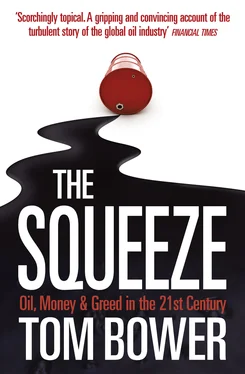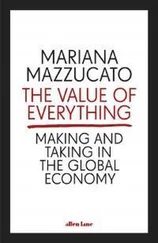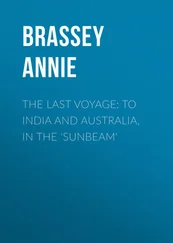Despite the souring mood, Exxon’s Rex Tillerson persuaded the Russian government to sign a second PSA for Sakhalin 1, a neighbouring area, albeit on less favourable terms than Marathon’s. Exxon was allowed only a 30 per cent share of the project, with Rosneft holding 40 per cent. Exxon would receive 85 per cent of the profits, while the Russian government took 15 per cent. Tillerson was pleased. Like Marathon, Exxon had successfully exploited Russia’s misfortunes, with little regard for the consequences. With the support of President Clinton, Exxon had sought to make profits for shareholders rather than to win the Russian government’s trust and thereby secure a lasting balance to OPEC. In Tillerson’s opinion, Exxon’s commercial priorities were paramount. Success in Sakhalin, he hoped, would tempt the Kremlin to allow Exxon’s exploration in the Barents Sea and the Kara Sea, an Arctic zone potentially containing eight trillion cubic metres of natural gas, the world’s biggest reservoir. If developed, the natural gas could be piped through the Yamal peninsula system, another huge Siberian energy basin. Those hopes were to be dashed. After the Russian government signed a PSA agreement with Total of France, PSAs were banned. Resurgent nationalism was stymieing Western oil companies across Russia, and even Chevron’s ambitions in Kazakhstan.
Chevron’s fraught negotiations to develop Tengiz had been stabilised by John Deuss. The trader famous for Brent squeezes was representing the government of the oil-rich Gulf state of Oman. Seeking investment opportunities, Deuss, flying his Gulfstream between Almaty in Kazakhstan, Europe, Washington and Jackson Hole, Wyoming, brokered the ‘ deal of the century’ between Kazakhstan and Chevron. His intention was to profit through the financing and ownership of a new pipeline to transport Tengiz’s oil to a port. Chevron’s success depended on the pipeline, which, despite Kazakhstan’s independence, was subject to the Kremlin’s veto if the proposals were deemed to be unfavourable. Ken Derr appeared untroubled by that hurdle. Desperate to reverse Chevron’s decline, and haunted by the company’s loss of $1 billion in Sudan during the 1980s, he was prepared to gamble on securing the oil first, only afterwards negotiating a pipeline’s construction.
The preliminary agreement to develop Tengiz, an area twice the size of Alaska, had been signed by Derr and President Nazarbayev of Kazakhstan on 18 May 1992 in Washington. In the initial $1.5 billion investment the Kazak government, advised by Morgan Guaranty Trust and Deuss, had persuaded Derr to reduce Chevron’s share of the income from 50 per cent to 20 per cent. Over 40 years the Kazak government expected to make $200 billion.
In public, Chevron’s success in Kazakhstan was credited to its technical superiority. The Kazaks and the Russians, it was said, could not manufacture the special quality of steel pipes needed to resist Tengiz’s corrosive crude oil, or provide the drills to reach 23,000 feet amid toxic hydrogen sulphide gas. In reality, Chevron’s breakthrough to secure the oilfield had been due to a combination of risk and dubious practices during excruciating negotiations which were saved from stalemate by James Giffen and John Deuss. The two maverick traders were consulted by Chevron to fashion a deal with Kazak and Russian politicians. Giffen, a 62-year-old New Yorker acting on behalf of other oil companies, was suspected of paying $78 million between March 1997 and September 1998 into Swiss bank accounts via the British Virgin Islands for the benefit of Kazakhstan’s President Nursultan Nazarbayev and some ministers. Nazarbayev was alleged to have used some of the money to buy jewellery, speedboats, snowmobiles and fur coats. On 31 March 2003, Giffen was arrested at JFK airport under the Foreign Corrupt Practices Act and charged with bribing Kazak officials. Two months later, J. Bryan Williams of Mobil pleaded guilty to evading taxes on a $2 million bribe connected to Mobil’s purchase of a stake in Tengiz costing $1.05 billion. Mobil (before merging with Exxon) had paid Giffen’s company, the Mercator Corporation, $51 million for work on the Tengiz deal, although Mobil insisted that Giffen was working for the Kazakh government and not them at the time. Giffen admitted depositing money in the Swiss bank accounts, but insisted that he had acted with the approval of the US government. The CIA, the State Department and the White House, he said, had encouraged his relationship with Nazarbayev. The prosecution remains in limbo, with Giffen on $10 million bail. The problem, as Chevron’s executives acknowledged, was the immutable relationship between corruption and securing oil supplies in the Third World. Giffen was accused of paying an immediate $450 million deposit to sweeten Nazarbayev’s interest. Ostensibly the payment was to finance Kazakhstan’s share of the investment, but the FBI would subsequently allege that the money was a bribe.
Derr’s success relied on pressure exerted by Vice President Al Gore and the White House on President Yeltsin and his ministers. Similarly, Andy Hall hoped that a visit by Ron Brown, the US secretary of commerce, would rescue some return from Phibro’s $100 million investment in White Nights, which by 1993 had become a disaster. His Russian partner had demanded extra money, which Hall called ‘outright expropriation’, and local government officials frequently ‘reinterpreted’ the terms of the contracts and changed the law to demand extra taxes. Hall felt naïve and a fool for rushing in after Exxon had rejected the project. ‘They just raised the taxes whenever it looked like we were going to make money,’ he complained. ‘I didn’t enjoy it.’ Brown’s protests against arbitrary rules and taxes imposed on American investors did secure the Russian government’s agreement to review taxation, but his announcement of success inflamed the nationalists, and Phibro would losenearly all of its $100 million. In New York, Salomon Brothers wrote off $35 million, curbed Hall’s trade in oil products and fired staff. Hall was not personally blamed. ‘He’s made a sickening amount of money in Nigeria,’ rued a competitor, impressed that Hall had successfully speculated in Nigerian crude, buying at $12 a barrel and watching the price rise to $20. ‘He’s an untouchable.’ Phibro had also, Hall acknowledged, earned ‘bucketfuls’ of money trading Iranian, North African and Persian Gulf crude. But, he insisted, ‘We’re always staying above board. Nothing illegal or involvement with the rinky-dinky stuff.’ His trader’s shrewdness did not prepare him for investment in Russia. ‘This is what happens when amateurs go into the oil business,’ chuckled an Exxon executive.
Exxon’s aversion to risk benefited BP and Amoco in Azerbaijan. Azerbaijan, on the landlocked Caspian Sea, was regarded by Russians as the birthplace of the world’s oil industry. Oil had for centuries seeped through the earth to the surface there and been used by locals for domestic fuel. Small refineries had been built before Robert Nobel, a Swedish industrialist, arrived in Baku from St Petersburg in 1873, searching for walnut trees from which to manufacture gun stocks for the tsar’s army. Instead of wood, Nobel bought a refinery, and began to successfully compete against the kerosene sold locally by Standard Oil. Baku flourished as an oil town until 1945. After the Allied victory over Nazi Germany, Stalin abandoned the region and directed his engineers to explore in the virgin areas of western Siberia. Forty years later they returned to Baku, and in 1987 discovered oil beneath 980 feet of water in the Caspian Sea. In October 1990 BP signed an agreement with Caspmorneftgas, the Soviet ministry of oil and gas, to develop that reservoir. Soon after, the Soviet Union collapsed and Azerbaijan became independent. BP’s choice was either to risk millions of dollars in Azerbaijan, or to compete with Chevron in neighbouring Kazakhstan.
Читать дальше











![John Bruce - The Lettsomian Lectures on Diseases and Disorders of the Heart and Arteries in Middle and Advanced Life [1900-1901]](/books/749387/john-bruce-the-lettsomian-lectures-on-diseases-and-disorders-of-the-heart-and-arteries-in-middle-and-advanced-life-1900-1901-thumb.webp)
